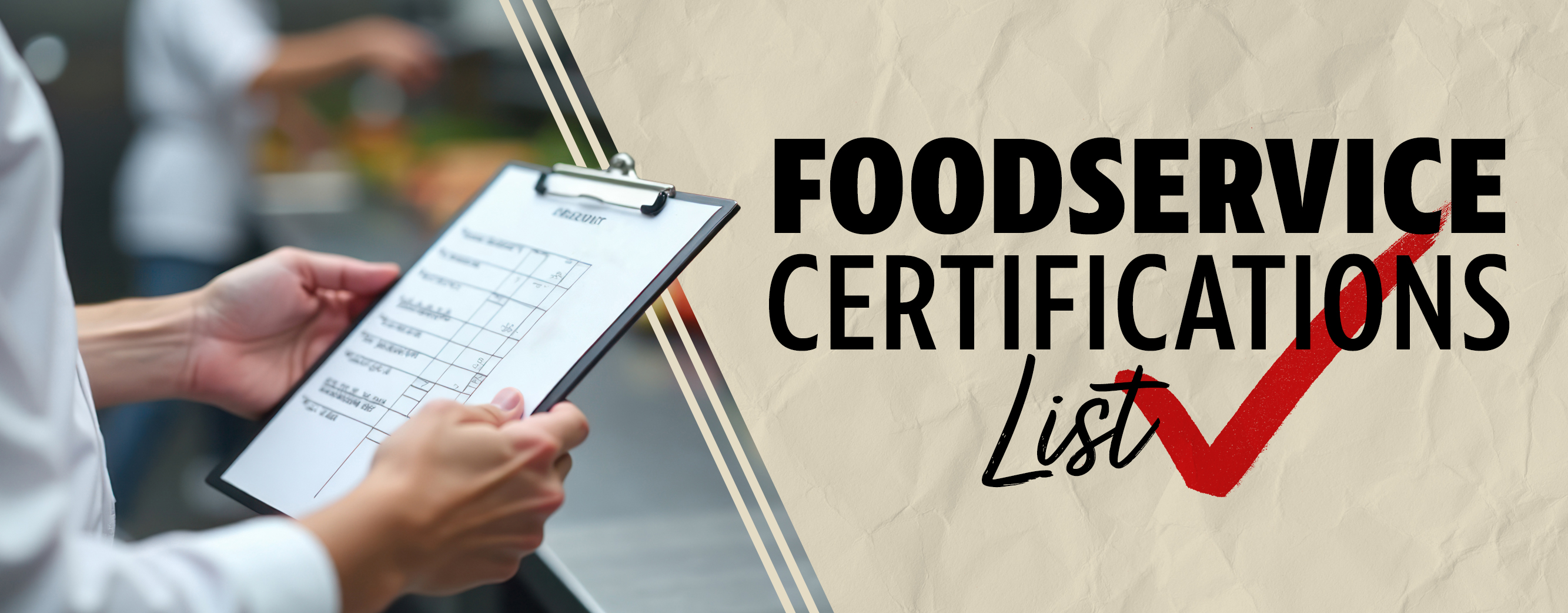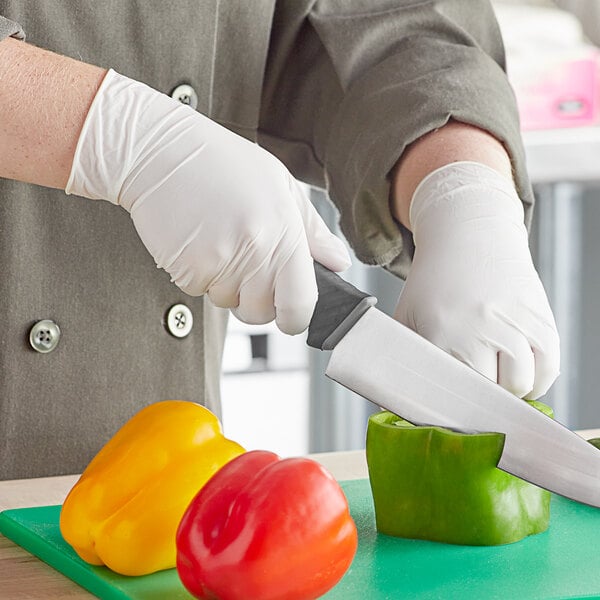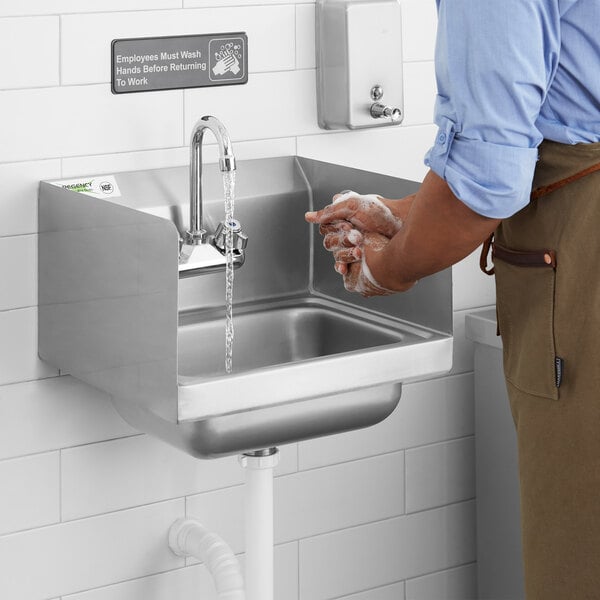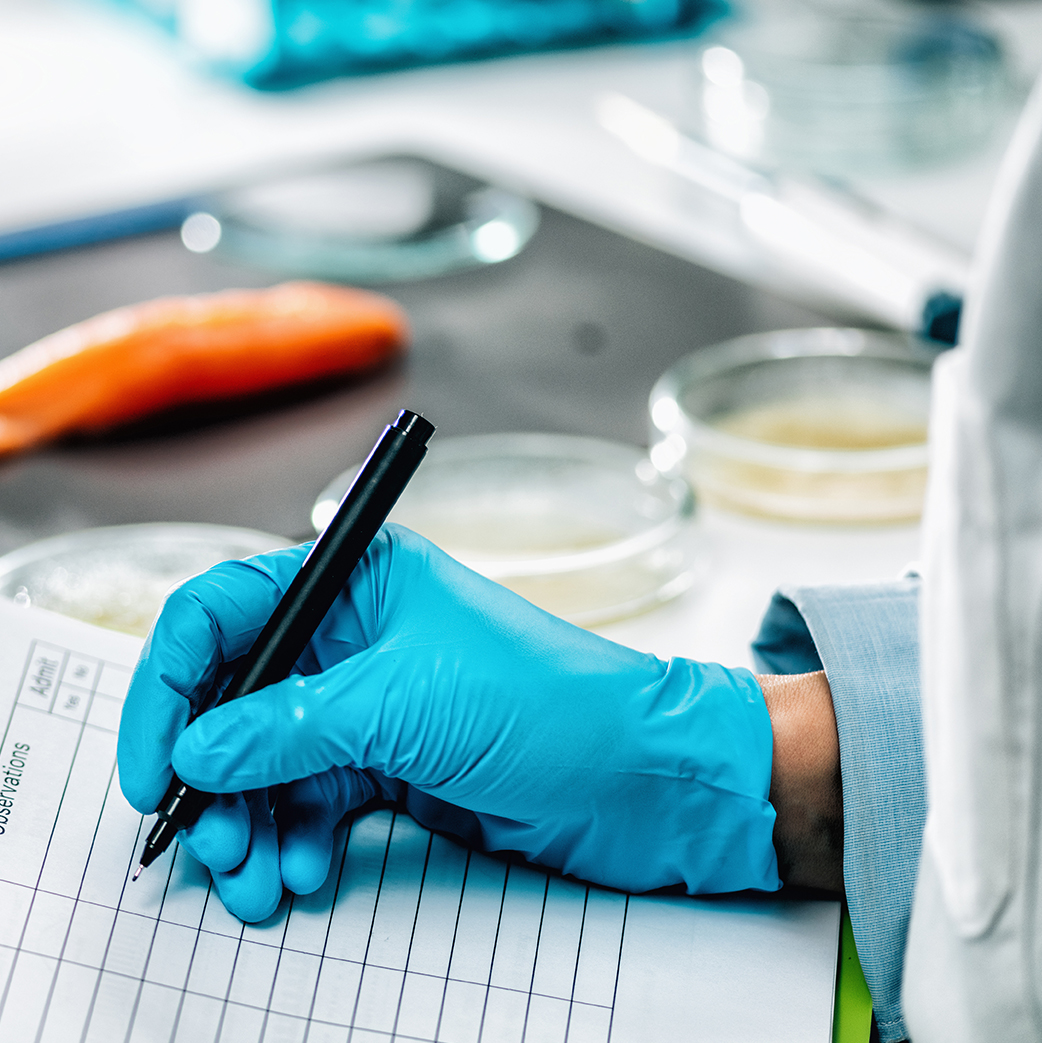
Official food and beverage certifications are essential for foodservice professionals to ensure safety, maintain quality, and uphold industry standards. Understanding safe food handling procedures minimizes the risk of contamination, which can lead to serious health issues and damage a business's reputation. This article explores key certifications that equip professionals with the knowledge and skills to prevent hazards, meet legal requirements, and instill customer confidence. Gaining these certifications protects consumers and enhances operational efficiency and career advancement opportunities.
What Is a Food Handler Certification?

A food handler certification demonstrates that a foodservice professional has been trained in safe food handling practices to prevent contamination and protect public health. These certifications are crucial for maintaining safety standards, ensuring compliance with health regulations, and fostering customer trust. They typically cover proper food storage, cross-contamination prevention, hygiene practices, and temperature control for cooking and holding food. In many regions, food handler certifications are legally required for employees who work directly with food, making them a vital component of any foodservice operation. Obtaining this certification ensures both individual accountability and the overall safety of the establishment.
Food Handling Certifications List
There are many food and beverage certifications available for employees and businesses regularly handling food, each with unique advantages and perspectives. Though the courses cover similar material, their teaching style, medium, practice tests, and prerequisites vary. Check out our food handling certifications list, which will ensure your staff knows safe food handling procedures.
- ServSafe Certifications
- Hazard Analysis and Critical Control Points (HACCP) Certification
- National Registry of Food Safety Professionals (NRFSP) Certified Food Protection Manager
- Food Handler Classes (FHC) Certificate
Food Manufacturing Certifications List
Food manufacturing certifications are designed to maintain food safety and quality standards across food manufacturing businesses. Some are nationally recognized, while other have global reach. As you consider the needs of your establishment, check out our list for the top food manufacturing certifications.
- Safe Quality Food (SQF) Certification
- Good Manufacturing Practices (GMP) Certification
- ISO 22000 Food Safety Management Certification
- Food Safety System Certification (FSSC) 22000
1. ServSafe Certification

As an industry leader, ServSafe provides comprehensive resources and courses to educate food handlers, managers, and alcohol servers on best practices for food safety, sanitation, and responsible service to promote health and safety in the foodservice industry. ServSafe certifications are widely recognized across the industry and are often required to comply with state and local regulations. By ensuring staff are trained and certified, businesses can minimize the risk of foodborne illnesses and build consumer trust.
What Is ServSafe?
As a top source of educational tools, materials, and programs designed to attract and cultivate a skilled industry workforce, ServSafe has established itself as a key organization within the restaurant industry since its inception in 1919. In collaboration with the National Restaurant Association Education Foundation, their mission is to guide the American restaurant industry toward a future marked by success, recognition, and engagement, ultimately improving the well-being of all those they support. To ensure everyone has access to critical food safety education, ServSafe also offers scholarships to reduce or mitigate the cost of courses.
How to Get ServSafe Certified
Equipping your staff with a food handling certificate through ServSafe's certification program is straightforward using these steps:
- Select the Appropriate Course: Determine and purchase the certification courses you need, such as Food Handler, Manager, or Alcohol Safety.
- Register Online: Visit the ServSafe website and create an account to enroll in the course that fits your role.
- Complete the Training: Study the course materials, which are available in online and in-person formats. Course prices vary, but their most popular courses cost between $120 to $190.
- Schedule the Exam: After finishing the training, register for the certification exam at an approved testing center or through an online proctor.
- Pass the Exam: Achieve a passing score to receive your ServSafe certification. It is only valid for a specified period depending on the certification type, so note when you must recertify.
2. HACCP Certification

HACCP (Hazard Analysis and Critical Control Points) certification focuses on food safety management systems to prevent contamination and ensure safe food production. This course covers hazard analysis, risk management, and control measures for each stage of food handling, from preparation to storage and distribution. It is vital for businesses that process, package, or distribute food, as many local and international food safety standards require HACCP compliance. Certification is available through accredited organizations, including food safety institutes and industry training programs.
How to Get HACCP Certified
Follow these steps to register and obtain HACCP certification:
- Choose the Right Training Program: Research accredited organizations - such as eHACCP, the International HACCP Alliance, or local food safety institutions - to find the program that fits your needs.
- Enroll in Training: Register for a training course that suits your role, such as introductory HACCP courses or advanced programs for management-level staff. Courses are available online or in person.
- Complete the Training: Study the core principles of HACCP, including hazard analysis, control points, and monitoring procedures.
- Pass the Certification Exam: Take the exam to demonstrate your knowledge and skills in implementing HACCP plans.
- Pay Certification Fees: Certification costs typically range from $650 to $2000, depending on the level of training and the certifying body.
3. National Registry of Food Safety Professionals

The NRFSP (National Registry of Food Safety Professionals) Certified Food Protection Manager certification is a widely recognized credential for individuals responsible for ensuring food safety in a commercial or institutional setting. This certification is ideal for restaurant managers, foodservice operators, and other professionals overseeing food preparation and handling. It covers critical topics such as foodborne illness prevention, hazard analysis, sanitation practices, and food safety regulations. You can obtain this certification through the NRFSP website or authorized testing centers.
What Is the NRFSP?
The National Registry of Food Safety Professionals is an organization dedicated to promoting food safety through training and certification programs. It offers certifications that meet ANSI (American National Standards Institute) and Conference for Food Protection (CFP) standards, ensuring compliance with regulatory requirements across the food industry. Their Certified Food Protection Manager program is specifically tailored to meet the demands of foodservice professionals looking to demonstrate their expertise in food safety management.
How to Get NRFSP Certified
Use this guide to earn your NRFSP Certified Food Protection Manager certification:
- Study for the Exam: Review food safety principles and topics, such as personal hygiene, cross-contamination, temperature control, and cleaning and sanitation. Study materials are available on the NRFSP website or through third-party providers.
- Choose a Testing Format: Decide whether to take the exam online (proctored) or in person at an authorized testing center.
- Register for the Exam: Visit the NRFSP website to create an account and register for the certification exam. The exam fee typically costs around $75-$120, depending on the format.
- Take the Certification Exam: Complete the multiple-choice exam, which assesses your knowledge of food safety management practices.
- Receive Your Certification: After passing the exam, you’ll receive your certification validation for five years.
4. FHC Certificate

The Food Handler Classes (FHC) Certificate is a credential designed for individuals working in foodservice establishments who need to learn and demonstrate basic food safety knowledge. This certification is for employees involved in food preparation, handling, or service in restaurants, cafes, catering, and other food-related businesses. The course covers essential topics such as foodborne illnesses, safe food handling practices, cross-contamination prevention, temperature control, and proper sanitation methods. You can obtain this certificate through the Food Handler Classes (FHC) website, which offers online courses and exams.
How to Get FHC Certified
Follow these steps to earn your Food Handler Classes (FHC) Certificate:
- Register for the Course: Visit the Food Handler Classes website and create an account. Choose the appropriate course for your state or region, as certification requirements vary.
- Complete the Online Training: Complete the online training course, which typically takes 2-4 hours to finish. The course is interactive and designed to provide comprehensive food safety education.
- Take the Exam: After finishing the course, take the online exam to assess your understanding of food safety principles. The exam consists of multiple-choice questions based on the training material.
- Receive Your Certificate: Once you pass the exam, you’ll receive your Food Handler Classes Certificate. This certificate is typically valid for 2-3 years depending on your state’s regulations.
- Cost: The course and certification exam cost around $10-$20, making it an affordable option for foodservice professionals.
5. SQF Certification

SQF (Safe Quality Food) certification is a globally recognized food safety and quality management standard designed to meet the needs of food producers, manufacturers, and distributors. This certificate ensures that food products meet stringent safety and quality regulations at every stage of the supply chain. SQF certification covers areas like food safety plans, risk management, and consistent quality assurance, making it essential for businesses seeking to demonstrate their commitment to safe and reliable food practices. Accredited certification bodies and training centers, such as the SQFI (Safe Quality Food Institute), provide this certification.
How to Get SQF Certified
Use this guide to get SQF certified:
- Learn About SQF Requirements: Review the SQF Code and determine which certification level (Food Safety or Food Quality) is appropriate for your business. The SQF Code is available for free on the SQFI website.
- Complete an SQF Training Program: Enroll in an approved SQF training course to understand how to implement SQF standards. Training costs typically range from $500 to $2,000, depending on the course level and provider.
- Develop and Implement a Food Safety Plan: Create and apply a comprehensive food safety and quality plan based on SQF standards within your facility.
- Choose an Accredited Certification Body: Partner with an authorized SQF certification body to schedule an audit of your facility.
- Undergo an SQF Audit: Pass the certification audit, which evaluates compliance with SQF standards. The audit cost varies based on the facility size and complexity, ranging from $3,000 to $15,000.
- Maintain Certification: Renew certification annually by undergoing surveillance audits and ensuring continuous adherence to SQF standards.
6. GMP Certification

Good Manufacturing Practices (GMP) certification ensures that food, beverage, and pharmaceutical businesses meet essential quality and safety standards in their production processes. GMP certification covers critical aspects of manufacturing, such as hygiene, employee practices, facility maintenance, production equipment, and process documentation. This certification is vital for businesses aiming to produce consistently safe and high-quality products while adhering to regulatory requirements. Organizations like NSF International, SGS, and other accredited certification bodies offer GMP certifications worldwide.
How to Get GMP Certified
Follow these steps to obtain GMP certification:
- Learn About GMP Standards: Review the applicable GMP guidelines for your industry to understand the specific requirements your facility needs to meet.
- Assess Your Facility and Processes: Conduct an internal audit to identify gaps in compliance and address any deficiencies in areas like sanitation, employee training, and equipment maintenance.
- Implement GMP Standards: Apply the necessary changes to align your facility and processes with GMP standards, ensuring thorough documentation of procedures.
- Choose a Certification Body: Select an accredited organization to perform a third-party audit and issue certification.
- Schedule and Pass the Audit: An auditor will review your facility and processes to verify compliance with GMP standards. Audit costs vary depending on facility size and complexity, typically from $3,000 to $15,000.
- Maintain Certification: Undergo regular audits and ensure ongoing compliance with GMP standards to retain certification.
7. ISO 22000

ISO 22000 is an internationally recognized certification for food safety management systems. It integrates key elements of food safety, including Good Manufacturing Practices (GMP), Hazard Analysis and Critical Control Points (HACCP), and continuous process improvement. This certification is ideal for food producers, processors, distributors, and other foodservice businesses looking to strengthen their food safety protocols. It covers everything from hazard control to supplier management and communication within the supply chain. Businesses can obtain ISO 22000 certification through accredited certification bodies such as SGS and Bureau Veritas.
How to Get ISO 22000 Certified
Use this guide to obtain ISO 22000 certification:
- Learn the Standard: Familiarize yourself with the ISO 22000 standard and ensure your food safety management system meets its requirements.
- Conduct a Gap Analysis: Review your existing systems to identify and address gaps in compliance with ISO 22000.
- Train Your Team: Educate employees on ISO 22000 principles to ensure a company-wide understanding of food safety procedures.
- Implement the Standard: Update processes, create necessary documentation, and establish effective monitoring and reporting systems.
- Choose a Certification Body: Select an accredited certification body specializing in ISO standards.
- Schedule and Pass the Audit: Certification auditors will assess your facility, processes, and documentation to ensure compliance. Costs for ISO 22000 certification audits vary based on the size and complexity of your business, typically ranging from $5,000 to $25,000.
- Maintain Certification: Commit to ongoing compliance by participating in regular audits and improving processes.
8. FSSC 22000

FSSC 22000 is a globally recognized certification for food safety management systems that builds on the ISO 22000 standard, incorporating additional sector-specific requirements. Designed for food manufacturers, processors, and packaging companies, this certification ensures a comprehensive approach to managing food safety risks and compliance with international standards. FSSC 22000 covers hazard control, quality assurance, supply chain management, and ongoing improvements. Credentials are available through accredited certification bodies like SGS and Lloyd’s Register.
How to Get FSSC 22000 Certified
Follow these steps to obtain FSSC 22000 certification:
- Understand the Requirements: Familiarize yourself with the FSSC 22000 framework and ensure your organization meets the required food safety management standards.
- Perform a Gap Analysis: Compare your current food safety practices to the FSSC 22000 requirements to identify areas for improvement.
- Update Processes and Documentation: Implement necessary changes to align with the certification requirements, including risk management and operational processes.
- Train Employees: Ensure all team members are well-versed in the updated systems and food safety principles.
- Choose a Certification Body: Select an accredited certification body to audit your business for FSSC 22000 compliance.
- Undergo a Certification Audit: Certification involves a two-stage audit - a documentation review and a thorough assessment of your food safety management practices. The cost of certification audits typically ranges from $5,000 to $30,000, depending on business size and complexity.
- Maintain Certification: After certification, participate in regular surveillance audits and continually improve food safety practices to retain certification.
Obtaining food and beverage certifications is crucial for maintaining high standards of safety, quality, and compliance in the foodservice industry. Certifications like ServSafe and HACCP enhance professional credibility and help prevent costly mistakes and health violations. Foodservice professionals should stay informed about the necessary certifications for their role and ensure they are up to date with current industry standards. Investing in proper training and certification ultimately supports the success of the business and the well-being of customers.





